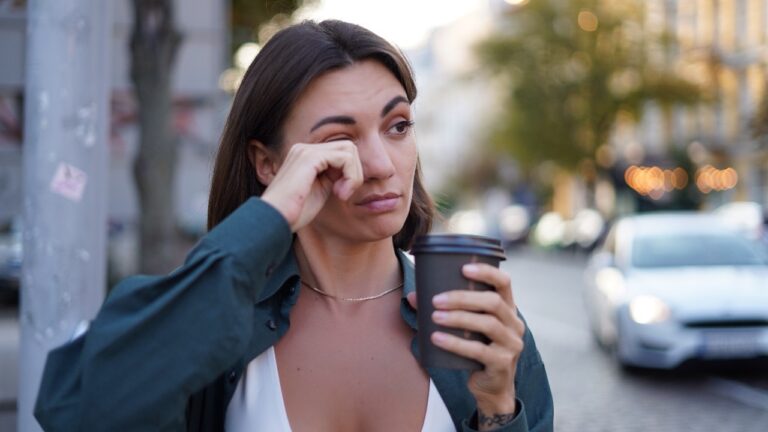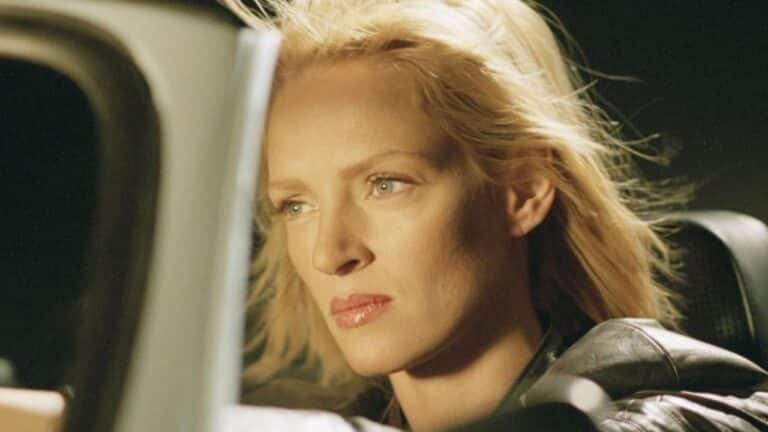15 Films Recommended by Martin Scorsese

Few people love cinema to the same extent as Martin Scorsese. A revolutionary director who forever changed the film industry, Scorsese is responsible for reinvigorating multiple film genres and influencing countless young directors like Quentin Tarantino, Wes Anderson, and Paul Thomas Anderson.
While he’s produced an immaculate body of work since his career began in the 1960s, Scorsese also has a reputation for his dedication to the film medium as a whole, possessing an encyclopedic knowledge of cinema dating back to the industry’s creation. A vocal proponent of classic Hollywood movies, Scorsese has also shined a light on a number of international movies over the years, including gems from Japan, Italy, and the United Kingdom.
From absurdist comedies by Fellini to more recent psychological horror movies from A24, here are a handful of movies recommended by Martin Scorsese.
1. Midsommar (2019)

In addition to shining a light on influential films from the past, Scorsese has also supported the work of up-and-coming directors still establishing themselves in the community. In particular, Scorsese has gone out of his way to express his admiration for the work of Ari Aster, the indie director behind films like Hereditary, Midsommar, and Beau Is Afraid.
While he has given Hereditary his seal of approval, Scorsese heaped further praise on Aster’s 2019 follow-up, the haunting folk horror movie, Midsommar. Scorsese has such a deep-seated love for the film, he even wrote the introduction to A24’s published screenplay version of Midsommar. “I can tell you that the formal control is just as impressive as that of Hereditary, maybe more so, and that it digs into emotions that are just as real and deeply uncomfortable as the ones shared between the characters in the earlier picture,” wrote Scorsese.
2. BlacKkKlansman (2018)

Over the years, Scorsese has supported influential filmmaker Spike Lee and his various cinematic achievements, listing Lee’s Malcolm X as one of his favorite movies of the 1990s. Almost thirty years later, Scorsese once again voiced support for Lee’s films, favorably discussing Lee’s 2018 return to form, BlacKkKlansman.
Ranking among the most celebrated movies from Lee in recent years, BlacKkKlansman dramatizes a sting operation involving a Black detective (John David Washington) infiltrating the K.K.K. “The picture takes you to a safe place — we’re watching a movie, it’s up on a screen — and suddenly we’re catapulted into now. Right next to you. Because it’s not only real, what you’re seeing up there on the screen — it’s happening,” Scorsese remarked. “It transcends the medium, what [Lee] did there in the last 10 minutes. It’s cinema and it’s beautiful.”
3. 8 ½ (1963)

As many cherished films as Federico Fellini has made throughout his career, his definitive magnum opus remains the 1963 comedy-drama 8 ½. A favorite film of Scorsese’s that he returns to once a year, 8 ½ focuses on an artistically stifled director (Marcello Mastroianni) struggling to think of his next movie, all the while avoiding the friends and collaborators demanding more details for his upcoming project.
“8 ½ has always been a touchstone for me, in so many ways—the freedom, the sense of invention, the underlying rigor and the deep core of longing, the bewitching, physical pull of the camera movements and the compositions,” said Scorsese. “But it also offers an uncanny portrait of being the artist of the moment, trying to tune out all the pressure and the criticism and the adulation and the requests and the advice, and find the space and the calm to simply listen to oneself.”
4. The Searchers (1956)

A great favorite of numerous French New Wave and New Hollywood directors, Scorsese — like Steven Spielberg, Jean-Luc Godard, and George Lucas — has long maintained a deep love for John Ford’s classic 1956 Western, The Searchers. One of the greatest films to feature John Wayne in action, the movie traces a former Civil War veteran’s (Wayne) near-decade-long search for his missing niece (Natalie Wood) in the Southwestern U.S.
“Like all great works of art, it’s uncomfortable. The core of the movie is deeply painful. Every time I watch it — and I’ve seen it many, many times since its first run in 1956 — it haunts and troubles me,” said Scorsese.
Ruminating on the deconstructionist themes prevalent throughout the film, Scorsese also called The Searchers‘ ending one of the best in cinematic history. “Only an artist as great as John Ford would dare to end a film on such a note,” Scorsese observed. “In its final moment, The Searchers suddenly becomes a ghost story. Ethan’s sense of purpose has been fulfilled, and like the man whose eyes he’s shot out, he’s destined to wander forever between the winds.”
5. Citizen Kane (1941)

Perhaps an obvious choice given its respected status in the film community, Citizen Kane has earned a place on most filmmakers’ lists of favorite movies. Given Scorsese’s intimate knowledge of film history, then, it shouldn’t be surprising that the director lists Orson Welles’ 1941 masterpiece as one of his top-ten movies.
“Primarily what [Welles] did on the script, he literally broke apart the linear narrative. Kane could take you anywhere at any time and you seem to go with it,” Scorsese said. “I don’t think anybody really saw anything like it.”
6. The Thin Red Line (1998)

Appearing as a guest host on Siskel & Ebert in 1999, Scorsese and film critic Roger Ebert named some of their favorite films of the 1990s. In addition to comedic crime films like Fargo and stirring biopics like Malcolm X, Ebert complimented Terrence Malick’s 1998 war epic, The Thin Red Line. Focusing on a massive ensemble cast, Malick uses his trademark focus on individual characters to create a probing look at how the human psyche is shaped and morphed by combat.
Discussing the film with Ebert, Scorsese said, “If Malick had just done a straightforward narrative, could he ever have achieved the kind of poetry he does here, or made a film where you really come to see the world as a primeval place? I don’t think so.”
7. Bottle Rocket (1996)

Along with The Thin Red Line, another film Scorsese listed as his favorite from the 1990s is the 1996 comedy heist film, Bottle Rocket. The feature-length debut of Wes Anderson, Bottle Rocket follows a pair of best friends (Owen and Luke Wilson) as they come up with a half-baked plot for a robbery, only to have their plans fall through around every corner.
“[Anderson] knows how to convey the simple joys and interactions between people so well and with such richness,” Scorsese said in 2000. “This kind of sensibility is rare in movies.”
8. The Leopard (1963)

Yet another favorite of Scorsese, The Leopard focuses on an older 19th-century Sicilian nobleman (Burt Lancaster) contending with the political upheaval of Italian unification. While Scorsese praised almost every aspect of the film, the filmmaker has pointed to The Leopard‘s depiction of chronology as one of the standout features of this 1963 Palme d’Or winner.
“Time itself is the protagonist of The Leopard: the cosmic scale of time, of centuries and epochs, on which the prince muses; Sicilian time, in which days and nights stretch to infinity; and aristocratic time, in which nothing is ever rushed and everything happens just as it should happen, as it has always happened,” Scorsese reflected.
9. The Red Shoes (1948)

A childhood favorite of Scorsese’s, the Academy Award-winning Scorsese has admitted to revisiting The Red Shoes once every year. In spite of these repeated viewings, however, Scorsese has said that the film always seems just as fresh and engaging now as it had been in his boyhood years. An intriguing study of how personal ambition can build into obsession, it’s one of the many treasured films directed by Michael Powell and Emeric Pressburger (the duo behind other Scorsese favorites like The Tales of Hoffman and Black Narcissus).
“There’s no other picture that dramatizes and visualizes the overwhelming obsession of art, the way it can take over your life,” Scorsese wrote of the film. “But on a deeper level, in the movement and energy of the filmmaking itself, is a deep and abiding love of art, a belief in art as a genuinely transcendent state.”
10. The River (1951)

A landmark film from respected auteur Jean Renoir, Scorsese – like Orson Welles and Wes Anderson – has referred to Renoir’s 1951 film, The River, as one of the greatest movies ever made. Like many of Renoir’s most well-known films, the movie features an introspective study of its lead characters, chronicling a teenage girl’s (Patricia Walters) first steps into adulthood.
“This was Jean Renoir’s first picture after his American period, his first in color, and he used Rumer Godden’s autobiographical novel to create a film that is, really, about life, a film without a real story that is all about the rhythm of existence, the cycles of birth and death and regeneration, and the transitory beauty of the world,” Scorsese commented.
11. The Exorcist II: The Heretic (1977)

While he has never shied away from praising William Friedkin’s legendary horror movie, The Exorcist, Scorsese has also professed his appreciation for the 1977 sequel, The Exorcist II: The Heretic. Often considered a critical disappointment that failed to live up to its predecessor, Scorsese has gone so far as to describe The Heretic as an overall superior film to The Exorcist.
“I like the first Exorcist, because of the Catholic guilt I have, and because it scared the h*ll out of me,” Scorsese said. “But The Heretic surpasses it. Maybe [director John] Boorman failed to execute the material, but the movie still deserved better than it got.”
12. Ugetsu (1953)

An aficionado of cinema from every nation and decade, Scorsese has long discussed the profound effect Kenji Mizoguchi’s various films have had on him over the years. While Scorsese has been quick to praise Mizoguchi’s work on The Life of Oharu and Sansho the Bailiff, the director’s 1953 fantasy drama, Ugetsu, remains Scorsese’s favorite entry in Mizoguchi’s filmography.
“There are moments in the picture, famous ones, that I’ve seen again and again and that always take my breath away,” said Scorsese. “Just to think of these moments now fills me with awe and wonder.”
13. Horror of Dracula (1958)

As pronounced as his affinity for international cinema is, Scorsese has also maintained an avid fascination for more commercial “popcorn movies,” including a deep love for Hammer Horror films of the 1950s and ‘60s. Though he’s reserved complimentary words for Terence Fisher’s The Curse of Frankenstein, Scorsese has made his love for Fisher’s 1958 horror film, Horror of Dracula, very clear.
Comparing and contrasting The Curse of Frankenstein with Horror of Dracula, Scorsese opined, “The better of the two, the film that I really felt went further was the Horror of Dracula. There’s nothing like the introduction of Dracula in that picture where he simply walks down the stairs and walks over to Jonathan Harker and says, ‘Hello, I’m Dracula.'”
14. One-Eyed Jacks (1961)

Similar to his deep-seated love of vintage horror movies, Scorsese also holds a deep reverence to the Western films of his youth, citing the work of John Ford and Sam Peckinpah as high-water marks in the genre. As impressive as Ford and Peckinpah’s various films are, Scorsese also highlighted the underrated Western, One-Eyed Jacks, as another of his personal favorites.
The first and only film directed by Marlon Brando, One-Eyed Jacks pits a lone gunslinger (played by Brando) up against his former partner-in-crime who left him to die (Karl Malden). Though unsavory reviews prevented Brando from directing another movie, Scorsese has marveled at One-Eyed Jack’s production value. “It was kind of a cross between the old style of production and the new styles that were going to come in in the sixties,” Scorsese said. “The essence of it is of the old Hollywood in a way.”
15. The Innocents (1961)

Named one of the most frightening films ever made by Scorsese, 1961’s The Innocents adapts Henry James’ classic gothic horror story, The Turn of the Screw, for the big screen. In it, a young governess (Deborah Kerr) takes a job working at the isolated Bly manor house, caring for two children (Martin Stephens and Pamela Franklin) whom she believes are under the influence of some sinister spirits.
“This Jack Clayton adaptation of The Turn of the Screw is one of the rare pictures that does justice to Henry James. It’s beautifully crafted and acted, immaculately shot (by Freddie Francis), and very scary,” deemed Scorsese.





